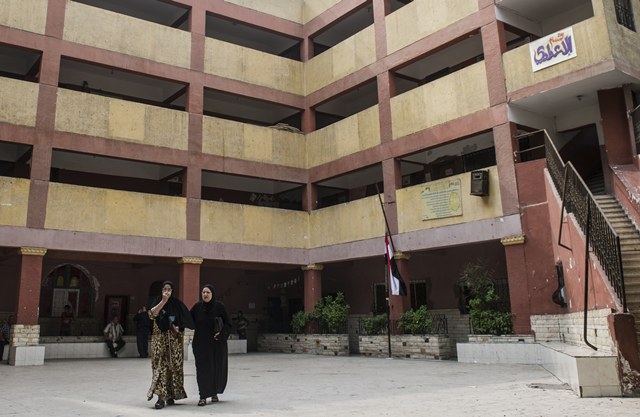

By Lin Noueihed
CAIRO: Egyptian Prime Minister Sherif Ismail said on Monday that turnout during the previous day's parliamentary election was just 15-16 percent but should rise now after public sector workers were given a half-day off to vote.
Voters, however, appeared to be shunning the ballot box for a second day on Monday in what one newspaper called "an election without voters", highlighting growing disillusionment since the army seized power in 2013 and promised to restore democracy.
Sunday and Monday's voting levels were extremely low, a in sharp contrast to the long lines of the 2011-12 election.
Younger Egyptians who comprise the majority of the population, stayed away with many people dismissing it as a sham.
Coming days after President Abdel Fattah al-Sisi urged Egyptians to cast their ballots, the low turnout suggested the former general was losing his appeal.
In 2013, then-army chief Sisi overthrew Egypt's first freely-elected president, the Muslim Brotherhood's Mohamed Mursi, and promised a "roadmap to democracy".
He then launched the fiercest crackdown on dissent in Egypt's modern history, jailing thousands of Mursi's supporters as well as activists at the forefront of the 2011 revolt that ended Hosni Mubarak's 30-year rule and ignited hopes of change.
"An election without voters," said a front page headline in the business daily Al-Mal. "Elections without queues," read a headline in Al Shorouk.
Even the pro-government Al Ahram zeroed in on the absence of young people at the ballot box.
"We don't know anything about these candidates so I'm not going to give my vote to someone who doesn't deserve it," Michael Bassili, 19, from Alexandria.
"As youth we're trying to fix the country and we'll work to do this...but these guys are just interested in money and themselves."
Egypt has had no parliament since June 2012 when a court dissolved the democratically elected main chamber, then dominated by the Brotherhood, reversing a key accomplishment of the 2011 Tahrir Square uprising.
Repeatedly postponed, Egypt's elections are now taking place over two rounds on Oct 18-19 and Nov 22-23. This week, voters cast their ballots in 14 regions including Egypt's second city of Alexandria on the Mediterranean coast.
Critics say an electoral system that puts the emphasis on individuals is a throwback to Mubarak-era politics, which favoured candidates with wealth and connections.
Of the 568 elected seats overall, 120 will be contested by closed winner-takes-all lists. But even these are expected to be dominated by loyalists.
Outlawed and branded a terrorist group, the Brotherhood, which won almost half the seats in the last election, is boycotting as is much of the secular and liberal opposition.
An alliance of socialist opposition parties that had been due to contest for seats eventually pulled out.
"There is obvious refusal to participate, which is proof that the people know what is going on right now is a farce designed to make the current regime look democratic," said Mohamed Soudan, an exiled Brotherhood official.
Reuters




